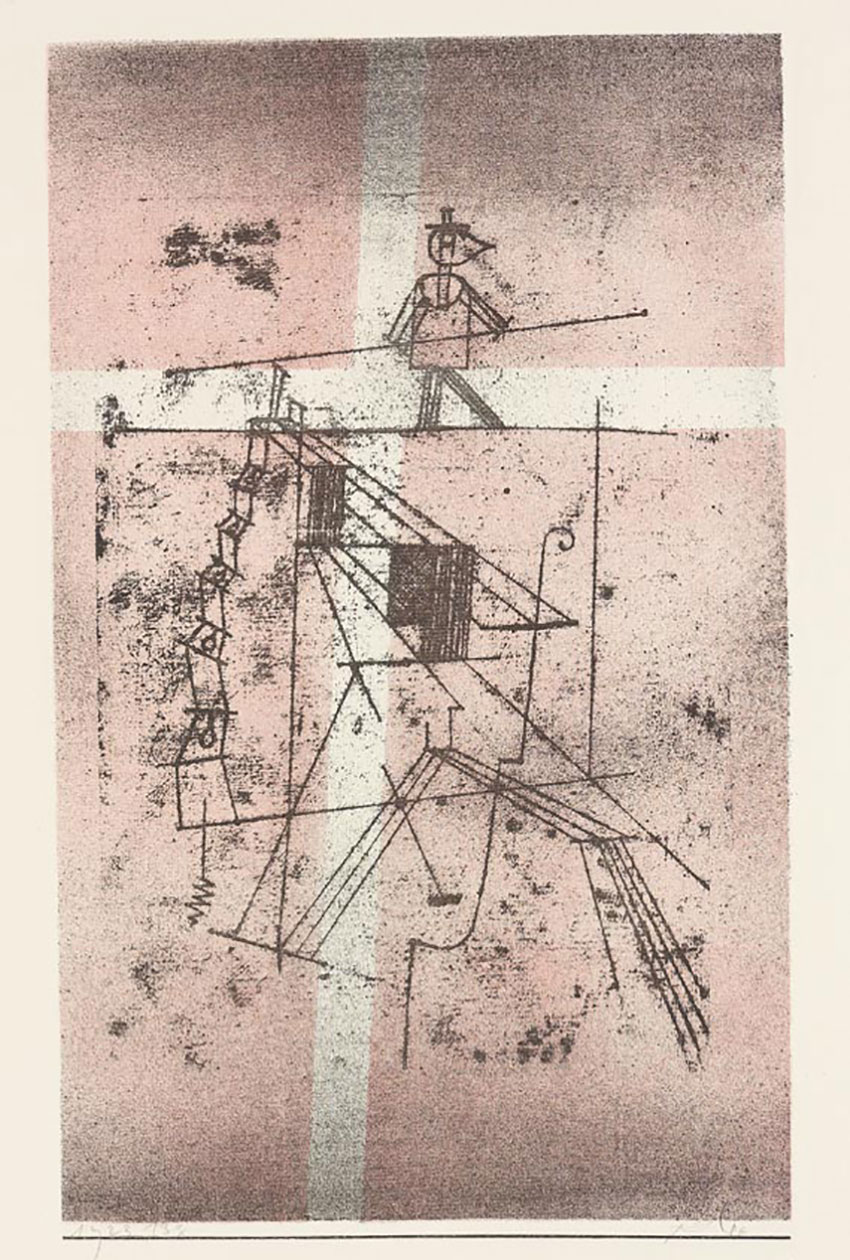Paul Klee, Tightrope Walker, 1923. (Courtesy: Wikimedia Commons)
Against Storytelling: Mission Statement
About a decade ago, I interrupted a talk I was giving to a small group of international writers and academics gathered in Delhi to say, ‘Fuck storytelling.’
My respondent, a British Asian literary journalist, later said, while commenting on my talk, how ‘shocked’ she’d been by my remark. It wasn’t the expletive she objected to, but my attack on ‘storytelling’, which had been so ‘empowering to peoples and cultures’. ‘Storytelling’ had, by now, become a sacred cow that you insulted at your own risk.
My reasons for making that remark were at least twofold. The first had to do with the fact that – given we live in an ethos in which the event is of primary significance, and whatever is significant has to be construed as an event of some sort – it follows that part of the reason stories are important is because they contain a happening, or happenings, in a character’s or a place’s life. It also follows that the eventless can’t be the proper subject of a story.
My second reason has to do with my discomfiture with the idea that ‘storytelling’ is a feature of non-Western culture, and a valuable resource, as a result, of a postcolonial politics that sets itself up against the Enlightenment. A glance at non-Western artistic expression reveals, however, a deep commitment to forms outside of what we now think of as ‘narrative’ (synecdoche, for instance, and other means of poetic elision).
In an essay I wrote more than a decade ago, ‘Notes on the Novel after Globalisation’, I’d remarked that globalisation, by the turn of the millennium, had become a kind of narrative – a lateral, interconnected network from which there was no escape, and from which no one evidently desired to escape – and this privileging of a narrative that had no ‘outside’ (globalisation) led to the marginalisation of the poetic, to the genre of the novel becoming synonymous with the ‘mainstream’, and to a particular celebration of narrative. Let me quote a section from the essay:
‘Another co-ordinate that should be mentioned in this mapping of narrativity as a crucial critical and political conceit is the idea of “storytelling”. It’s a notion that didn’t really exist in any persuasive way on the intellectual landscape thirty years ago. Its rise is related to the fashioning of the discourse of postcoloniality; “storytelling”, with its kitschy magic and its associations of postcolonial empowerment, is seen to emanate from the immemorial funds of orality in the non-Western world, and might be interpreted as a critique of the inscribed word, and its embeddedness in Western forms of knowledge. “Storytelling”, then, is also an alternative to disciplines like history in the Western humanities; if it is now an ingredient in history-writing, it is so precisely to mark a break with the Eurocentric, the literate, the elite. No wonder that the notion is invoked almost always with an air of glamour and celebration. Both the concordances and the distinctions between this invocation and Walter Benjamin’s recovery of the figure of ‘the storyteller’ are instructive; for Benjamin was by no means an unequivocal advocate of narrativity. Thus, in the first paragraph of “The Task of the Translator”: “No poem is intended for the reader, no picture for the beholder, no symphony for the listener.” Benjamin is expressing the profound modernist desire for disjunction, a breach in the lateral weave of the fabric; it’s an image strikingly different from the one of simultaneous readership that comprises Anderson’s nationhood. Today, in the early twenty-first century, we’ve entered yet another cultural and political phase, after the shifts and reappraisals represented, in their time, by modernity and post-modernity. This shift asks us to look at narrative once again; and it asks the novelist to be careful about the point at which “storytelling” begins to collude with the narrativity of globalisation.’
The symposium in February 2018 aims to discuss questions raised by the sacredness we attribute to this apparently timeless act of recounting and telling.
Amit Chaudhuri, June 2017



